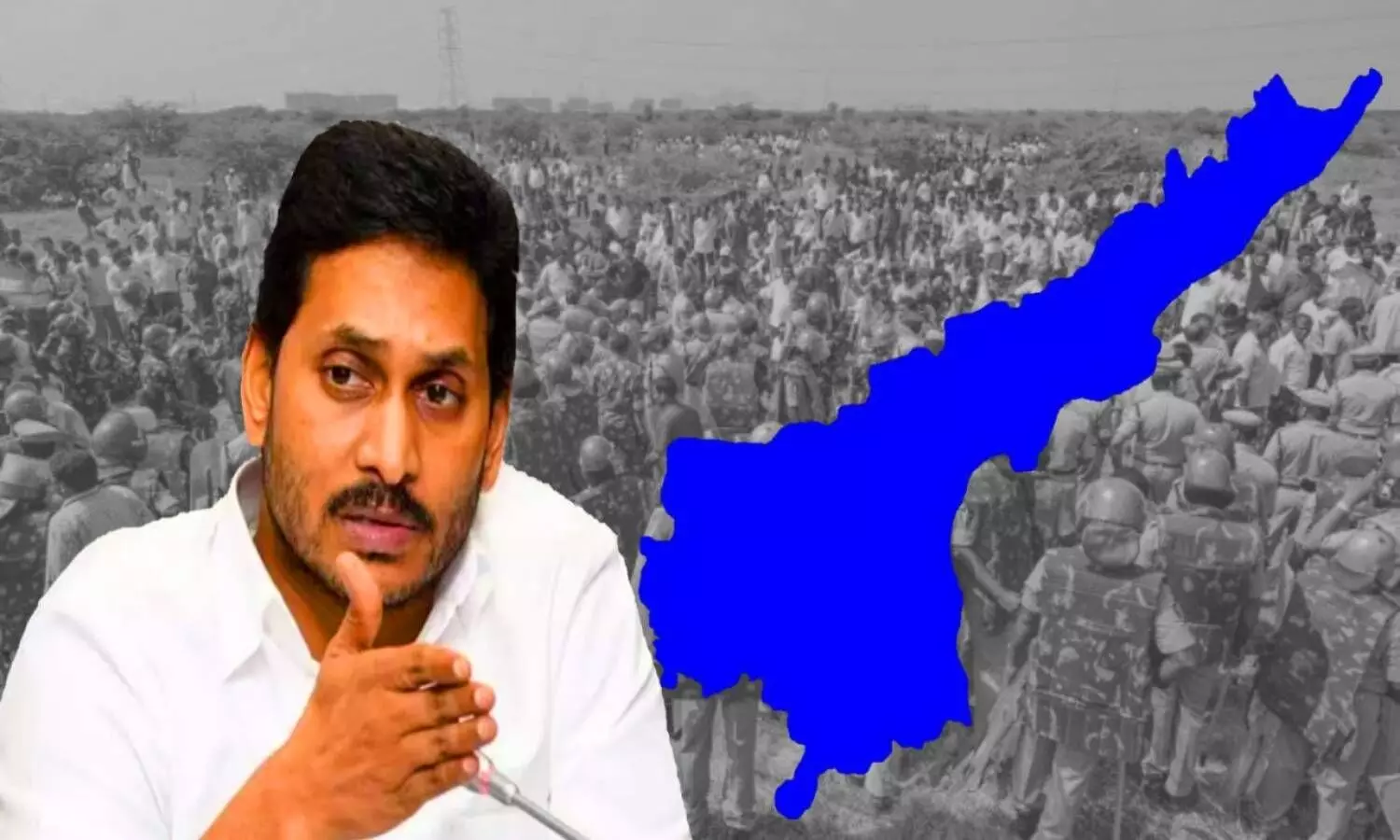Three Andhra capitals: Consultation process to yield positive result
At least in the undivided Andhra Pradesh, several Chief Ministers followed the thumb rule of having a majority of the stakeholders to the result of any decision on their side.
By A Saye Sekhar
The process of consultation before embarking on any task is a time-tested method for effective results. Anything done in haste or an autocratic manner may not necessarily end up as a failure, but the decisions arrived at after ensuring inclusiveness of all stakeholders involved surely have not failed.
The decision of the Andhra Pradesh Chief Minister Y S Jaganmohan Reddy to repeal the two Acts for the establishment of three capitals for the truncated State is a welcome move. It's ipso facto clear that the Government doesn't want the proposition to hit a cul de sac at any cost. The repeal of the enactments would let the government open a debate on the pros and cons of the three capitals idea envisioned by it. The government has reconsidered the decision with a view to denouncing the "false narrative" created by its detractors, especially the Telugu Desam Party and the Janasena.
The Jaganmohan Reddy Government wants to create the narrative it so desires and drum up support for the idea of the new capital. As if to prove that the maxim of "better late than never", the government sought to enlist support before bringing out new pieces of legislation.
At least in the undivided Andhra Pradesh, several Chief Ministers followed the thumb rule of having a majority of the stakeholders to the result of any decision on their side.
For instance, before doing away with the mega schemes of NT Rama Rao — Rs 2 a kg rice, Rs 50 a horsepower of electricity to the farm sector, and Total prohibition, the Chandrababu Naidu administration opened a consultation process in 1996.
Discussions were held with multiple interest groups like political parties, economists, bureaucrats, journalists, advocacy groups, farmer bodies, law enforcement agencies, lawyers, doctors, and many others by circulating a "white paper" on each of the subjects.
The Chandrababu Naidu Administration designated officials, ministers, legislators, and politicians up to the grassroots level to hear the views expressed by the interest groups and compile the same. Data science was not the buzzword back then, nor was artificial intelligence and machine learning to throw results on dashboards with multiple analyses.
Naidu used the media too to galvanize the popular support for the proposed ideas before the kick start of the activity to enact rules or GOs. Even if a decision is not in the larger public interest, the government used to use the outcome of the consultation process as a pretext for going ahead with its plans.
Many schemes during Naidu's regime have witnessed such a campaign before they took shape.
The regime of YS Rajasekhara Reddy was also not very different. It's not new that the leaders would take some decisions on the spur of the moment. However, if they realize that the decision is impulsive or has negatively been impacting the populace in general, there were many instances when they backtracked. The YSR Government had taken the views of stakeholders while implementing "jala yagnam" - irrigation projects - and corrected its course whenever it was necessary.
The subsequent governments too did so. In fact, KCR Government too firmly believes in enlisting popular support before enforcing any decision. The Chief Minister himself sought to know on more than one occasion what's wrong if the government had to rescind a decision or modify the same. Minister for Municipal Administration and working president of the Telangana Rashtra Samithi (TRS) KT Rama Rao said several times that the responsibility of the government was to listen to people and amend its decisions if necessary.
Chandrababu Naidu had another interesting habit of "building up opinion" by giving leaks in select media platforms, with specific target groups in mind. The reactions used to make up for points in making the laws. Even if there is a vehement opposition, his administration used to identify the supporters and isolate naysayers. The decision to create a new mega capital in the name of a non-existent Amaravati was one such act of commission by the TDP regime.
YS Jagan regime doesn't seem to follow this process in major decisions. Though there would be critics for any move by any government, the majority view should be in favor of any decision especially when it's likely to become contentious.
Instead, if the State's actions are seen as petulant, there is every danger that they could evoke dissent and bring disrepute to the government.
Populist decisions would always have resistance from economists and bureaucrats; there would be a larger endorsement. For instance, schemes like free power to farmers, free healthcare (like Arogya Sri), Rythu Bandhu/Bharosa Dalitha Bandhu, would obviously attract popular support. That the exchequer would be ensconced in a severe financial crisis is a different story.
Yet, that's what the beauty of democracy is all about. Jagan's government, for all or some or none of the reasons mentioned or speculated by staunch votaries or misanthropes or detractors, has taken a wise decision to scrap the laws and open a dialogue. The government is resolute to bring about a comprehensive law by incorporating views of all. Long live vox populi.
Disclaimer: The views expressed in this article are the opinions of the author and do not represent the views of NewsMeter. We have not changed, added, or omitted anything to the text. NewsMeter is not responsible for the accuracy of the facts and the content of external links included in the article.